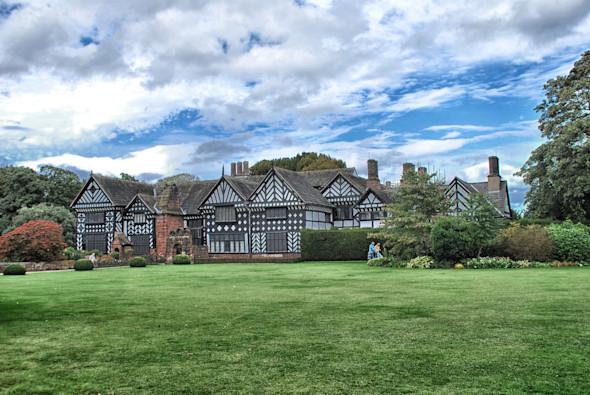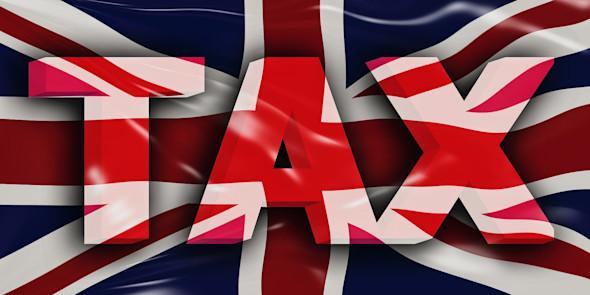Airbnb Rules in Liverpool

Today, Liverpool’s holiday homes continuously thrive and are available to travelers via sites like Airbnb. With an estimated 3,306 active rental properties in the capital alone and with an 80% Airbnb rental channel in comparison to other OTAs, the demand for holiday lets are on the rise with an average daily rate of $175 with a 54% occupancy rate, and a monthly revenue of $2, 183 (AirDNA stats, 2022).
That is to say, the rising demand for short-term lets not only from travelers but also from the student market and business travelers making property investors magnetized to this proud long-standing city, Liverpool. By investing in a property in Liverpool, homeowners or investors can benefit from a new source of income and offer travelers affordable and comfortable alternatives.
Interested to find out more? Or thinking to kick-start your Airbnb business in Liverpool? Let's first look at:
Getting to know Liverpool
What is short-term let in Liverpool?
What are the local short-term rules and regulations in Liverpool?
What are the short-term hosting responsibilities in Liverpool?
Short-term taxes in Liverpool
Final thoughts
Getting to know Liverpool
Liverpool is one of Europe's proud tourist hotspots well-known for its football clubs, musical scenes, friendly and down-to-earth residents, history, and overflowing culture. Arguably, the city is home to the world-renowned music band "The Beatles". And if you are a big fan of Liverpool FC, here's a reminder that Liverpool is not just known for l Premier League football but offers more than meets the eye. Not to forget, it is also home to five established universities and world heritage sites.
This exciting city boasts plenty of galleries, museums, an iconic waterfront, and legendary nightlife. Moreover, the city welcomed 26.14m visitors as of June 2021 and according to North West Research and Strategy, the city is the 5th most visited city for international visitors and 4th in England for domestic visitors in 2019.
With its growing economy, student market, and tourism, Liverpool is catching the eye of property investors, especially with relatively low house prices and high rental demand. Additionally, with no restrictions on the number of days, property investors can achieve the highest rental yield, enjoy the maximum return on investment, and have a decent level of occupancy.
What is Short-Term Let in Liverpool?
Any letting of a house or flat or residential tenancy for any period or fall within the time frame not exceeding six months, provided with supplied fully furnished utilities is considered a short-term let in Liverpool.
Technically, tenancies exceeding six months to a year are commonly marketed as medium-term rentals and long-term lets.
What are the Local Short-Term Let Rules and Regulations in Liverpool?

Is a licence required?
Anyone who lets a property to tenants in 16 wards of the city is compulsory to obtain a valid selective licence for their holiday let. Moreover, you may need to apply for an HMO licence if:
Five or more unrelated households live on the property including children or babies.
Occupants of the property share amenities such as a bathroom or kitchen
Privately let a property within Liverpool City Council's boundaries
New regulations on HMO licences are implemented stating the minimum bedroom floor sizes must be as follows:
For a child under 10 years of age - 4.64m²
For any single person over 10 years of age - 6.51m²
For two people - 10.22m²
In addition, the landlord is required to provide facilities that can store waste for tenants while waiting for timely council refuse collections.
Licence period
Licenses can be granted for up to five years. However, the licence application will be reviewed and possibly be shorter depending if:
Property has been unlicensed for any period when it should have been licensed
We have recent evidence that it has been poorly managed
You do not respond to notices or requests for information from Liverpool City Council
You do not have the correct planning consent
Bear in mind, that the list is not exhaustive and there are possibly others issues that may grant a license for a shorter period.
What is a Landlord Licensing Scheme and the benefits?
Due to the insufficient property condition throughout Liverpool, the city council introduced a Landlord Licensing scheme to tackle the issue while ensuring landlords are 'fit and proper' covering rented short-term lets in most areas of the city.
On April 1, 2022, landlords with properties in specific areas of Liverpool are required to have a licence in place until 2027 aimed at raising at least the minimum standard of Liverpool holiday homes imposed by the Housing Act 2004.
That said, applicants are asked to declare convictions for dishonesty, violence or drug-related offences, or breaches of housing, landlord or tenant laws. In addition, they are also asked questions with regard to the property and amenities it offers.
Once a licence is approved a number of compliance visits will be made to ensure licensed properties meet the requirements.
Who should be the licence holder?
In most cases, the licence holder should be the person or property management company that has a valid UK address that legal notices can be served at and:
Collects the rent
Issues and ends tenancies
Carries out the daily management tasks of the property let
Is the contact for tenants in regards to reporting issues
How much is the fee?
The fees are divided into two parts:
the initial payment that will be taken when submitting your application
and the final payment when ready to grant the licence and carry out compliance checks to ensure you meet the licence requirements.
Followed by:
1. Full property licence fee - £550
Initial payment: £181.50
Final payment: £368.50
2. New rental property licence fee after 31st July 2022 - £380
Initial payment: £178.60
Final payment: £201.40
3. Early bird or new rental property licence for EPC rated C or above - £330
Initial payment: £178.20
Final payment: £151.80
4. Early bird or new rental property licence for EPC rated C or above, plus multi-flat - £280
Initial payment: £179.20
Final payment: £100.80
Exemptions
Properties with an HMO licence are exempted. However, there are also a number of other circumstances which may mean you do not have to licence a property. Find out more on Liverpool City Council fees, discounts, and exemption page.
How to apply and the requirements?
To apply for a licence, you must first ensure to have all the required and relevant documents on hand before starting your application. The following documents are:
Proof of address
Gas certificate
Property details
Tenancy details
Safety information
Name, Addresses, and Email of all interested parties
'Fit and Proper' information
That being said, to register and apply for a short-term let's licence, you are required to create an account on Liverpool's City Council Licensing and Regulations (LAR) system where you can access the application form with its step-by-step guide in completing the application.
Apart from that, you can track the progress of your application via LAR, make payments, and queries
That being said, to register and apply for a short-term let's licence, you are required to create an account on Liverpool's City Council Licensing and Regulations (LAR) system where you can access the application form with its step-by-step guide in completing the application.
Apart from that, you can track the progress of your application via LAR, make payments, and queries
What are the Short-term Let Responsibilities in Liverpool?
Safety
The safety of hosts and guests is of utmost importance. That being said, provide guests with simple emergency instructions and details of any potential hazards in the holiday home. Include emergency contact information such as local emergency numbers, nearest hospital contact info, and host personal number or backup contact info in case the host is unreachable.
Additionally, in case of an emergency, let guests know the best way to contact the host whether it is via Airbnb messages as an option.
Gas Safety
Make sure the gas equipment they supply is safely installed and maintained by a Gas Safe registered engineer
Have a registered engineer do an annual gas safety check on each appliance and flue
Ensure that the Authority is provided, within 14 days of any written demand, with copies of all gas safety records and/or documentation relating to the house that is specified in the demand.
Electrical and Furniture Safety
The electrical system is safe, for example, sockets and light fittings
All appliances supplied are safe, for example, cookers and kettles
Ensure that the Authority is provided, within 14 days of any written demand, with a declaration by him as to the safety of electrical appliances and furniture made available by him (or by the landlord, if he is not the licence holder) in the house.
Fire Safety
Follow safety regulations
Provide a smoke alarm on each storey and a carbon monoxide alarm in any room with a solid fuel burning appliance (for example a coal fire or wood burning stove)
Have access to escape routes at all times
Make sure the furniture and furnishings they supply are fire safe
Provide fire alarms and extinguishers if the property is a large house in multiple occupation (HMO)
Ensure that the Authority is provided, within 14 days of any written demand, with a declaration as to the condition and positioning of all such smoke and carbon monoxide alarms.
Short-Term Let Taxes in Liverpool

Income Tax or Business Tax
It is important to understand the difference between letting out a room in your main residence and letting out a room as an Airbnb investment property. If you say your Airbnb business is letting out a room where you reside, you'll benefit from several tax-free allowances and advantages.However, if you're a host running an Airbnb business in the investment property or partially reside and are available to let for 140 days or more per year is classified as a self-catering property which then is liable for business rates.
Council Tax
When letting out a short-term let or investment property and it's available to let for less than 140 days per year, you will be liable to pay council tax if you are paying income tax. However, if you are paying business rates, you do not necessarily need to pay council tax.
VAT
Keep in mind, to consider the VAT threshold of £85,000 per year. This means that you'll be required to register for VAT if your total Airbnb rental income is greater than this threshold.That being said, you can opt to either pay it on your own or split the extra cost between you and the guest by slightly increasing the nightly rates of the holiday home.
Airbnb Tax Relief
Micro-Entrepreneurs allowance
The UK government has commenced a scheme aimed at supporting micro-entrepreneurs who rent out properties on OTAs such as Airbnb. This allows recipients to deduct £1000 against their gross income to calculate and arrive at their taxable yearly rental income figures.
Capital gains Tax Relief
If you own an Airbnb investment property and let out a room that you do not live in as well as qualify as a Furnished Holiday Let (FHL) allows you to benefit from capital gains tax. This means:
A 10% capital gains tax rate instead of the usual 28% when selling your property under the Entrepreneurs scheme
To defer capital gains tax on the sale of your initial property when you sell one Airbnb residence and buy another one under the rollover scheme
Avoid paying capital gains tax under the gift Hold-Over relief scheme that involves you as a business owner giving away your business assets or selling them for less than what they are worth so you can help out a buyer
Access to the capital allowance for property furniture and fittings
And count towards your pension contribution